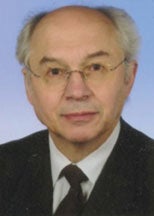On Nov. 3, Dr. Franz Adlkofer, former executive director of the VERUM Foundation for Behavior and Environment, spoke to a Harvard Law School audience as part of the lectures and events series hosted by the Edmond J. Safra Center for Ethics.
In his lecture, “Protection Against Radiation is in Conflict with Science,” Adlkofer discussed the difficulties he and other scientists face when presenting research on the carcinogenic effects of electromagnetic fields emanating from cell phones. He also discussed the institutional corruption which he says obstructs their research.
Adlkofer described his experience with the EU-funded study REFLEX, which aimed to explore the effects of cell-phone radiation on the brain. The study’s conclusions demonstrated that low frequency as well as radiofrequency electromagnetic fields below the allowed exposure limits displayed gene-damaging potential.
In 2004, shortly after releasing those findings, Adlkofer was the target of allegations questioning the validity of the findings and even accusing him of fraud. While an ethics panel eventually dismissed the accusations, his struggle against slander continues, he said.
In May 2011, the International Agency for Research on Cancer classified high frequency electromagnetic fields including cell phone radiation as merely “possibly carcinogenic” for humans, Adlkofer said, but he pointed out that studies such as REFLEX were not taken into account in reaching that determination. Had they been, he said, the classification likely would have changed from “possibly” carcinogenic to “probably.”
“The practices of institutional corruption in the area of wireless communication are of enormous concern,” said Adlkofer, “if one considers the still uncertain outcome of the ongoing field study with five billion participants. Based on the unjustified trivializing reports distributed by the mass media by order and on account of the wireless communication industry, the general public cannot understand that its future wellbeing and health may be at stake. The people even distrust those scientists who warn. In democracies, it is a basic principle that above power and their owners are laws, rules, and regulations. Since in the area of wireless communication this principle has been severely violated it is in the interest of a democratic society to insist on its compliance.”
